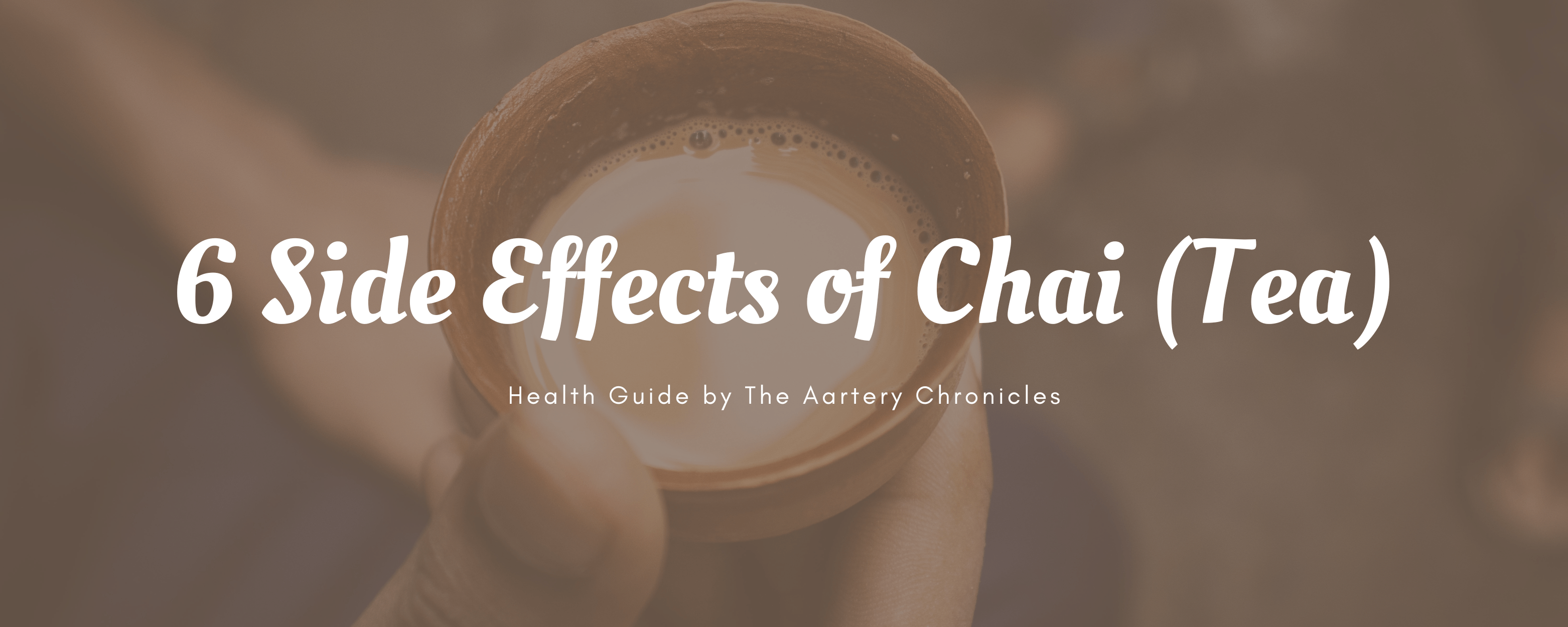

6 Side Effects of Chai (Tea)
Tea (Chai), a beloved beverage enjoyed by millions worldwide for its flavour and perceived health benefits, also carries potential side effects, particularly when consumed in the morning. While tea offers antioxidants and a gentle caffeine boost, its effects can vary widely depending on individual tolerance and the type and quantity consumed. Here are 6 possible ill effects of tea:
Caffeine Dependence
Regular intake of tea, especially strong varieties like black or green tea, can lead to caffeine dependence. This dependency may result in withdrawal symptoms such as headaches, irritability, and fatigue when tea consumption is reduced or stopped abruptly.
Digestive Issues
Tea, particularly when consumed on an empty stomach in the morning, can irritate the stomach lining and lead to digestive discomfort. This may manifest as acidity, heartburn, or gastritis, especially in individuals prone to gastrointestinal issues.
Disrupted Sleep Patterns
The caffeine content in tea can interfere with sleep patterns, particularly if consumed late in the day or in excessive amounts. Difficulty falling asleep, frequent awakenings during the night, and overall restless sleep are common issues associated with caffeine intake close to bedtime.
Increased Heart Rate and Blood Pressure
Caffeine is a stimulant that can temporarily increase heart rate and blood pressure. This effect may be more pronounced in individuals with underlying cardiovascular conditions or sensitivity to caffeine.
Dental Staining
Tea contains tannins, which can contribute to the staining of teeth over time, particularly if consumed regularly and not followed by adequate oral hygiene practices such as brushing and flossing.
Impact on Iron Absorption
Compounds known as polyphenols in tea, such as tannins and catechins, can inhibit the absorption of non-heme iron from plant-based foods and supplements. This may be of concern for individuals with iron-deficiency anemia or those who rely heavily on plant-based sources of iron.
From caffeine dependence and digestive discomfort to potential impacts on sleep and dental health, understanding these side effects can help individuals make informed choices about their morning beverage routine. Balancing enjoyment with moderation is key to reaping the benefits of tea while minimizing its potential drawbacks for overall well-being.









